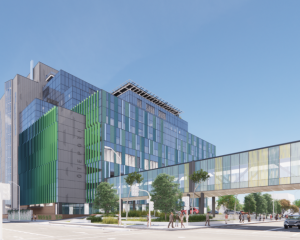
Every day more than 3500 Oranga Tamariki-Ministry for Children staff go to work determined to do their best to keep New Zealand’s children safe. It is the reason why I joined the ministry at its inception last year. I’m proud to work somewhere where everyone shares a common goal of giving children and young people the life they deserve and an opportunity to grow into successful adults.
On any given day we work with 30,000 children and young people. We work alongside our partners to provide the help children need, and we try to keep families together because usually that is best for kids. We tackle problems including abuse and neglect, family violence, untreated mental illness, drug and alcohol problems.
Sadly for some children, home can be an unsafe place. There are times when the level of harm or risk of harm is too great. Those children and young people come into the care of the ministry, and it’s vital they get the right support and services they need. Those 6100 children and young people are among our most vulnerable. To help them recover, we need a significant investment of specialist care.
As a one-year-old ministry, we have learned from the mistakes of the past and are committed to doing a better job. That means making bold decisions about where we put our time, and our money. We need to prioritise the resources to ensure the children who need our help the most get it first. Oranga Tamariki funds around $260 million a year for services in the community, which are delivered by more than 500 different organisations. Stand is one of our largest providers and we value our partnership with them. This year we will provide Stand with $18.1 million in funding, and the Ministry of Education will provide another $2 million. However, as is well documented, we were unable to meet their request for an additional $3 million to meet their rising costs.
Stand made the decision to close the Otaki and Roxburgh villages. Although some families and children may understandably feel disappointed to lose the option of a residential village, we are confident they will receive the same level of intensive support, but from within their own home. In-home support is widely acknowledged as best-practice for children’s wellbeing and recovery and is a successful model both in New Zealand and overseas. The southern South Island region is well served by a range of highly experienced and respected organisations who have a proven track record of supporting children and families in need. We fund eight other providers in the region: Anglican Family Services, Mirror Services, the Otago Youth Wellness Service, Presbyterian Support Otago, Presbyterian Southland, Barnardos, Jigsaw, and the Youth Horizons Trust. Oranga Tamariki has been talking to these providers to ensure they have the capacity to reach out to the children affected by the village’s closure.
So what have we done to further ensure that no local children and young people miss out?
We have established a panel of some of those NGOs so we can find ways to work together more effectively. The panel will take referrals from Stand, along with relevant assessment information and make recommendations such as a support plan. We will also track the wellbeing of the children who may have been in the village at Roxburgh and report back to the chief executive. To ensure local children and young people get the care they need, we have also set aside a contingency fund to support their needs.
As a new ministry, we always try to be honest about what we’re doing, and how we could do it better. On Friday we held a hui in Balclutha – the fifth of 14 nationwide meetings to touch base with the professionals and providers who share our common goal of building a better system for children. To do this, we need to accept change. Sometimes that means making difficult decisions about where to best put our time and resources. That responsibility to put children first sits not only with us but with our partners, the community and all New Zealanders. With a shared focus, we can achieve a collective impact.









